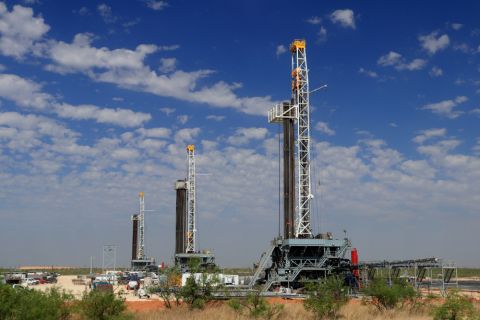
The project would become Louisiana’s first offshore CO2 storage hub. (Source: Shutterstock)
Carbonvert Inc. and Castex Carbon Solutions said Sept. 19 they have executed an operating agreement with the state of Louisiana to store carbon on a 24,000-acre tract in state waters offshore Cameron Parish.
The project would become Louisiana’s first offshore CO2 storage hub.
The joint venture (JV) partners said the Cameron Parish CO2 Hub will have a storage capacity of more than 250 million metric tons of CO2, serving a region that has a high concentration of industrial emitters with more greenfield ammonia and LNG projects to come.
Carbon capture and storage (CCS) is among the options being pursued to wrangle emissions. And incentives in the Inflation Reduction Act of 2022—such as an increase to the 45Q tax credit, expanded construction deadlines and lower carbon capture thresholds—and state incentives are luring companies to incorporate CCS into their emission reduction strategies.
“Our CCS project will strengthen the local economy via funds from the newly adopted Louisiana Act No. 378, via the Federal Justice40 requirements, and by attracting new low-carbon focused businesses and related jobs,” Carbonvert CEO Alex Tiller said in a news release. “It will also provide a solution to clean up existing regional CO2 emissions, which is a win for everyone.”
Carbonvert, which announced in late August the sale of its 100% ownership interest in the Bayou Bend CCS project in Southeast Texas to Equinor, said the JV is also looking to repurpose existing pipeline infrastructure for the planned Cameron Parish hub.
“Our Cameron Parish project combines premier geologic storage attributes with existing midstream infrastructure to provide a range of tailored solutions to the adjacent industrial corridors in need of economically viable CO2 storage,” Aaron Killian, Castex executive vice president and CFO said in the release. “The significant environmental benefit and local economic impact of this project align with the mission and vision of the JV Partners and the industries we are collaborating with to address regional CO2 emissions.
Recommended Reading
US Drillers Cut Most Oil Rigs in a Week Since November
2024-04-26 - The number of oil rigs fell by five to 506 this week, while gas rigs fell by one to 105, their lowest since December 2021.
TPH: Lower 48 to Shed Rigs Through 3Q Before Gas Plays Rebound
2024-03-13 - TPH&Co. analysis shows the Permian Basin will lose rigs near term, but as activity in gassy plays ticks up later this year, the Permian may be headed towards muted activity into 2025.
US Drillers Add Most Oil, Gas Rigs in a Week Since September
2024-03-15 - The oil and gas rig count, an early indicator of future output, rose by seven to 629 in the week to March 15.
US Drillers Add Most Oil Rigs in a Week Since November
2024-02-23 - The oil and gas rig count rose by five to 626 in the week to Feb. 23
US Drillers Add Oil, Gas Rigs for Third Time in Four Weeks
2024-02-09 - Despite this week's rig increase, Baker Hughes said the total count was still down 138 rigs, or 18%, below this time last year.

